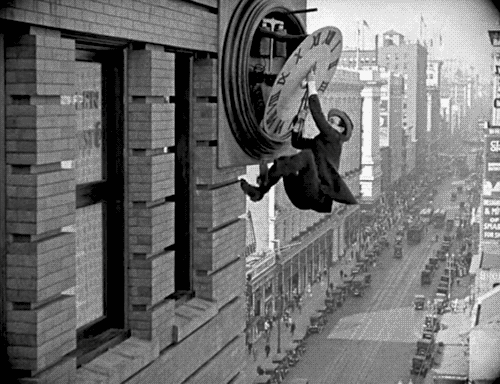Time has been collapsing for centuries, with technology shortening seasons to seconds.
This insta-world has been willed into being relatively quickly. Telegraph lines didn’t dot the American landscape until 1861, so it was only 157 years ago that news was carried primarily by horse, ship and lip. The latest word about doings in Europe didn’t reach the U.S. for several days. Now news is, of course, instantaneous, as is fake news. The future has arrived, and it mostly sucks.
• • •
In a scientific sense, this assault of the senses caused by our latest tools is just a mirage, as is our notion of time itself.
From the physicist’s point of view–certain physicists, anyhow–our orderly sense of past, present and future doesn’t actually exist. This neat progression of events is a psychological trick, an illusory quirk, which allows our consciousness to frame existence and make it manageable. It fools us into believing we’re in charge of what comes next when it’s already here.
James Gleick, author of Time Travel: A History, writes on the topic in “When They Came From Another World,” a New York Review of Books piece on Ted Chiang’s collection, Stories of Your Life and Others, and the film it inspired, Arrival. An excerpt:
There is a strain of physicist that likes to think of the world as settled, inevitable, its path fully determined by the grinding of the gears of natural law. Einstein and his heirs model the universe as a four-dimensional space-time continuum—the “block universe”—in which past and future are merely different places, like left and right. Even before Einstein, a deterministic view of physics goes all the way back to Newton. His laws operated like clockwork and gave astronomers the power of foresight. If scientists say the moon will totally eclipse the sun in New York on April 8, 2024, beginning at 12:38 PM, you can bank on it. If they can’t tell you whether the sun will be obscured by a rainstorm, a strict Newtonian would say that’s only because they don’t yet have enough data or enough computing power. And if they can’t tell you whether you’ll be alive to see the eclipse, well, maybe they haven’t discovered all the laws yet.
As Richard Feynman put it, “Physicists like to think that all you have to do is say, ‘These are the conditions, now what happens next?’” Meanwhile, other physicists have learned about chaos and quantum uncertainty, but in the determinist’s view chance does not take charge. What we call accidents are only artifacts of incomplete knowledge. And there’s no room for choice. Free will, the determinist will tell you, is only an illusion, if admittedly a persistent one.
Even without help from mathematical models, we have all learned to visualize history as a timeline, with the past stretching to the left, say, and the future to the right (if we have been conditioned Sapir-Whorf-style by a left-to-right written language). Our own lifespans occupy a short space in the middle. Now—the infinitesimal present—is just the point where our puny consciousnesses happen to be.
This troubled Einstein. He recognized that the present is special; it is, after all, where we live. (In Chiang’s story, Louise says to her infant daughter: “NOW is the only moment you’ll perceive; you’ll live in the present tense. In many ways, it’s an enviable state.”) But Einstein felt that this was fundamentally a psychological matter; that the question of now need not, or could not, be addressed within physics. The specialness of the present moment doesn’t show up in the equations; mathematically, all the moments look alike. Now seems to arise in our minds. It’s a product of consciousness, inextricably bound up with sensation and memory. And it’s fleeting, tumbling continually into the past.
Still, if the sense of the present is an illusion, it’s awfully powerful for us humans. I don’t know if it’s possible to live as if the physicists’ model is real, as if we never make choices, as if the very idea of purpose is imaginary. We may be able to visualize the time before our birth and the time after our death as mathematically equivalent; yet we can’t help but fret more about what effects we might have on the future in which we will not exist than about what might have happened in the past when we did not exist. Nor does it seem possible to tell a story or enjoy a narrative that is devoid of intention. Choice and purpose—that’s where the suspense comes from. “What is your purpose on Earth?”•
Tags: James Gleick, Ted Chiang

